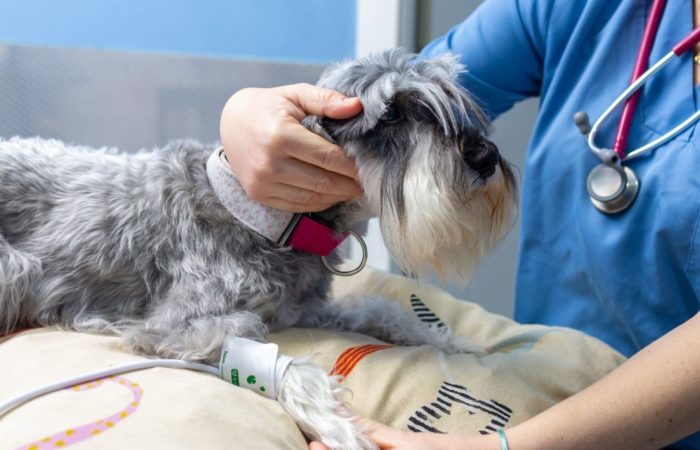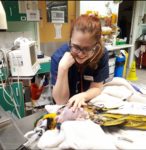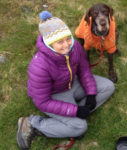Advanced skills for RVNs: Taking your technical skills to the next level (2023)
Our nursing members wanted an advanced nursing course that will motivate and inspire them to learn from other experienced and inspirational speakers across a variety of topics. This course aims to be the UK leader in providing a completely holistic approach to CPD for registered veterinary nurses and vet techs.
This course will be delivered by a variety of speakers, including EBVS and RCVS recognised Specialists as well as nurses who hold advanced qualifications (e.g. Advanced certificates/qualifications) or who are recognised experts in their field. The course runs over an eleven week period and is equivalent to 14 hours of CPD/CE. It is delivered via pre-recorded video webinars and supplemented with a real-time discussion forum where delegates can ask questions about specific topic content or about cases that they are experiencing in practice – where they maybe just need a bit of support. There is also 2x Live Q&A elements to this course.
Speakers on this Advanced Skills course include Scott Kilpatrick (internal Medicine Specialist), Ashley Wemple (RVN CertVNECC), Laura Jones (RVN, Dip AVN, VTS Internal Medicine), Lacey Pitcher (EVN), Harry Swales (Internal Medicine Specialist), Janette Bailey-Woods (RVN) and Matteo Rossanese (Surgery Specialist).
Access to this course is for 12 months from the start of the course going live on our website. If you sign up to the course after the live sessions have run, you will still be able to access the recordings from the live sessions. The discussion forum will be monitored for the course duration only.
Course Content
- You know how to run the tests; Let’s look in more detail at what the results mean for your patients.
- Electrolytes and blood gas analysis can be confusing. In this lesson we will crack the code of acid base!
- We will review some more unusual tests… from coagulation to Coombs.
- When is fluid therapy indicated and what are maintenance fluids/rates
- Be confident in fluid calculations, even the complicated ones
- Understand the difference between fluid types and the indications
- Case based examples
- Comfortably assess a blood smear from a healthy patient (canine / feline)
- Identify changes consistent with RBC regeneration & non-regenerative anaemia
- Identify abnormal RBC distribution and explain when a saline agglutination might be warranted
- Perform a platelet count
- Identify types of white blood cells & toxic changes in neutrophils
- Practically apply the information from blood smears to specific cases such as IMHA, IMTP, parvovirus, chronic renal failure, and more.
- The indications for, placement techniques of and nursing care of different feeding tubes
- Considerations for placing, using and caring for central venous catheters.
- How to care for and manage patients with chest drains
- How to place and care for urinary catheters in both male and female patients
- How to place and maintain arterial catheters
- Review what feeding tube options we have and when to use them.
- Understand what to feed and when.
- Review the role of appetite stimulation and when is this appropriate.
- Is there a need for prokinetic and gastroprotectant medication in our anorexic patients?
- What is total parenteral nutrition and when do we use it.
- Your chance to discuss any cases you have seen in practice or to ask questions.
- We will bring along a few interesting cases too!
- Be confident looking under the microscope.
- Understand the common conditions that can be diagnosed with the help of fine needle aspiration and cytology.
- Review what other fluids look like under the microscope. Taking the confusion out of effusions.
- Understand how to take your anaesthesia skills to the next level.
- Learn how to maximise your anaesthesia equipment to optimise patient care
- When anaesthesia goes wrong… Stay calm and carry on!
- Case based scenarios… Examples to get you thinking?
- Vascular access: how to place a central line and an arterial line
- Hot to correctly use the different surgical instruments
- How to perform common suture patterns
- How to perform basic surgical procedures.
- Understand what EBVM is and why it matters to the veterinary profession.
- Optimising the nurse’s contribution to EBVM in practice.
- Have you always thought about writing a veterinary article? Let us talk you through the process and give hints and tips.
- Your chance to discuss any cases you have seen in practice or to ask questions.
- We will bring along a few interesting cases too!
Meet the speakers
show
already purchased this course? login to your vtx account for access
login








